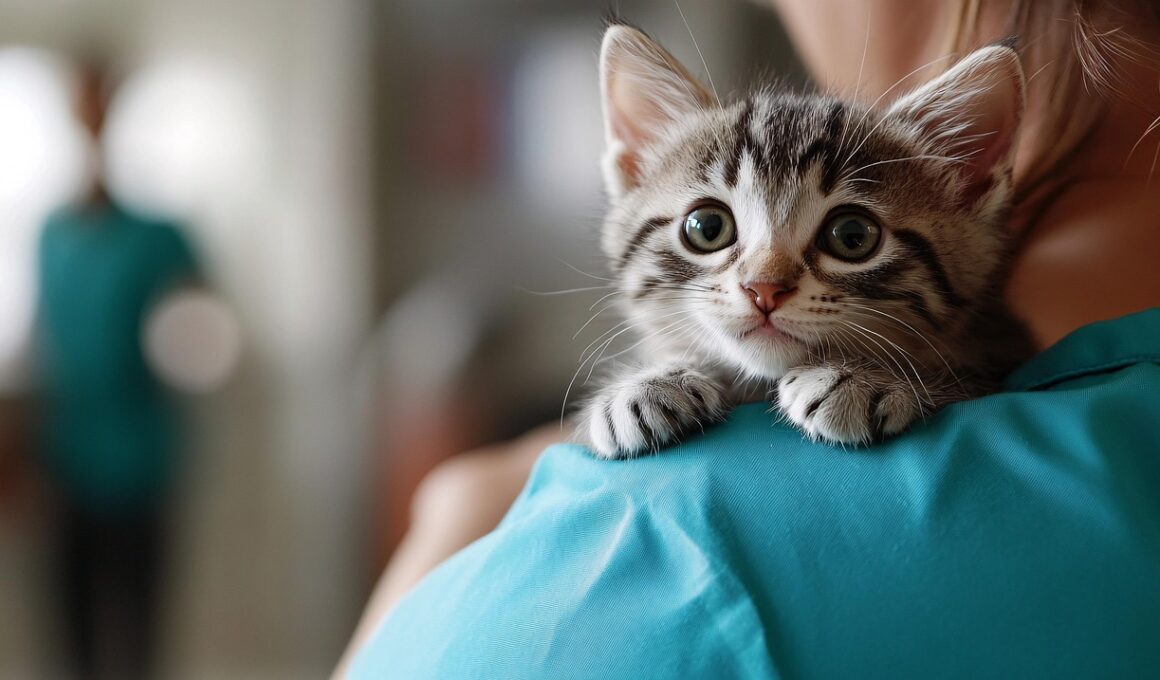Signs Your Cat’s Vet May Have Committed Malpractice
When you notice signs that your cat is not improving after a visit to the veterinarian, it could raise a flag regarding the quality of care. Common signs include persistent symptoms like vomiting, diarrhea, or abnormal behavior despite treatment. If your cat is developing new problems that were not present during your previous visit, this could indicate negligence. Additionally, if medical records are inaccurate or appear to have been altered, this raises serious concerns. It’s critical to verify any diagnosis provided during your visit, as misdiagnosis can lead to improper treatment. Another sign can be the lack of clear communication: your vet should answer your questions and clarify concerns. If you feel rushed or dismissed, this might be a red flag. Paying attention to changes in your cat’s condition is crucial. Maintain an open dialogue about your pet’s health, and don’t hesitate to seek another opinion. If there’s a major discrepancy in treatment options or medication prescribed, those should be examined closely. Overall, being an informed pet owner can help protect your cat’s health against malpractice.
Trust your instincts. If your gut feeling is that something is off after a consult, it’s essential to seek a second opinion. Any options provided should be backed by thorough explanations and evidence-based practices. If you suspect that treatment isn’t working, schedule a follow-up to discuss further tests or alternative approaches with your vet. You may also want to document everything: keeping track of visits, treatments, and your observations can serve as evidence if needed later. It’s sad to think about, but in some instances, pets can suffer due to a vet’s negligence. This could include medication errors, surgical complications, or poor post-operative care. Use caution if your vet is unwilling to discuss these issues openly. Additionally, observe the cleanliness and professionalism of the clinic or practice. A disorganized and unhygienic environment can often indicate poor care standards. Clients should feel comfortable and confident; any hesitations should trigger more investigation. Always ensure that the vet is properly licensed and has a good reputation. It’s worth checking reviews and testimonials from other pet owners about their experiences with the practice.
Understanding Veterinary Standard of Care
Each veterinarian is expected to provide care that meets an established standard of practice. Failing to meet such a threshold can sometimes lead to malpractice claims. Generally, the standard of care varies by geographic location, as local laws and regulations may differ; however, most vets must adhere to guidelines endorsed by veterinary boards and associations. Understanding this standard can be a valuable resource when advocating for your pet’s health. If a vet fails to implement appropriate medical tests, provide adequate treatment options, or miscommunicates diagnosis, this might amount to malpractice. You can ask your vet about the protocols or practices they follow, and whether they are consistent with industry standards. If a situation arises where your cat needs specialized care, a lack of referrals or consultations with colleagues can also indicate negligence. Recognizing signs of insufficient practice requires active involvement as a pet owner. Each decision should be based on sound medical principles and reasoned judgment. Knowing when to take action or address concerns will empower you to make informed choices for your cat’s health outcomes.
Furthermore, adequate documentation is paramount in determining whether malpractice has occurred. If your vet has not maintained clear medical records, administering vaccines or noting changes in symptoms, you may encounter difficulties later. When issues arise, thorough documentation helps establish timelines and ensures more accurate assessments of your cat’s health. The law might require certain records to be kept for specific periods, and failing to do so is a breach of standard practice. This lack of proper record-keeping may serve as evidence in malpractice matters. Every interaction, medication given, and treatment should be recorded carefully. If your pet suffers adverse effects after a procedure or treatment, your veterinarian could potentially be held liable if proper protocols were ignored. Gathering and preserving all related documents, such as receipts and written communication, is essential. Additionally, consult with trusted friends, family, or community resources for feedback and guidance to identify underlying issues. Gathering perspectives and support from fellow pet owners can also enhance understanding and drive corrective actions in your cat’s care.
Signs of Negligence in Cat Care
Negligence can manifest in various ways during veterinary visits. A common indicator involves improper handling during examinations or procedures. If your cat exhibits signs of fear or distress, this may signal inadequate experience or care on the vet’s part. Understanding your pet’s typical response to treatment can provide context to assess the vet’s behavior and treatment methods. Also, observe whether your vet spends enough time on each appointment. Rushed consultations signal poor practice and attention to detail. Important discussions about medications, dosages, and side effects may be glossed over, leaving you uneasy. Another essential aspect is the communication of risks associated with procedures or treatments. Your vet should provide clear information about potential side effects and wellbeing consequences. In instances of surgery, a detailed surgical consent form must be provided and analyzed. Ignoring these factors can result in adverse outcomes for your cat. A responsible veterinarian will discuss all expected complications along the way, allowing you to make informed decisions for your pet’s well-being. Overall, cultivating an open and careful veterinary-client relationship is fundamental.
Mistakes in medication can significantly affect your cat’s health and should be taken very seriously. If your cat experiences side effects or adverse reactions after receiving medication, promptly consult a qualified vet. Errors can occur with dosage calculations or drug interactions, which can lead to devastating consequences. Ensure that the veterinarian is observant about potential interactions between various medications your cat might be receiving. You have a right to question the vet about the prescribed medications, including possible alternatives, and whether each step is necessary. Building a clear understanding with your vet regarding their practices will ensure that you both prioritize your cat’s health above all else. Additionally, if you discover that your cat has suffered because of a vet’s inexperience or carelessness, consider speaking with a legal professional who specializes in veterinary malpractice. They can provide insight into your options and guide you through the process step-by-step. Remaining well-informed about medical treatments, including reading up on procedures, helps you become a better advocate for your pet and determines whether significant oversight occurred during veterinary care.
Conclusion: Protecting Your Cat’s Health
Ultimately, the health and well-being of your cat depend partly on your diligence as a pet owner. Upholding awareness of the quality of care your cat receives ensures that any issues are addressed promptly. Remain vigilant for unusual behavior or changing symptoms that may warrant further investigation. Discuss any discrepancies or concerns with your vet, so good communication can be a part of the care process. If they fail to respond positively, this might be a deliberate oversight that needs assessment from another professional. Exploring other veterinary practices or consulting specialists can provide additional perspectives on your pet’s health. Trust your instincts; if something feels off, take action to protect your cat’s well-being. Documentation, thorough communication, and understanding standards of care will stand you in good stead against potential malpractice. By remaining proactive in your pet care journey, you can ensure that your furry friend receives the best possible attention and treatment. In case of serious doubts or negligent practices, consider filing complaints with appropriate boards to help prevent future occurrences. Awareness and diligence can contribute significantly to a positive outcome for your cat.


